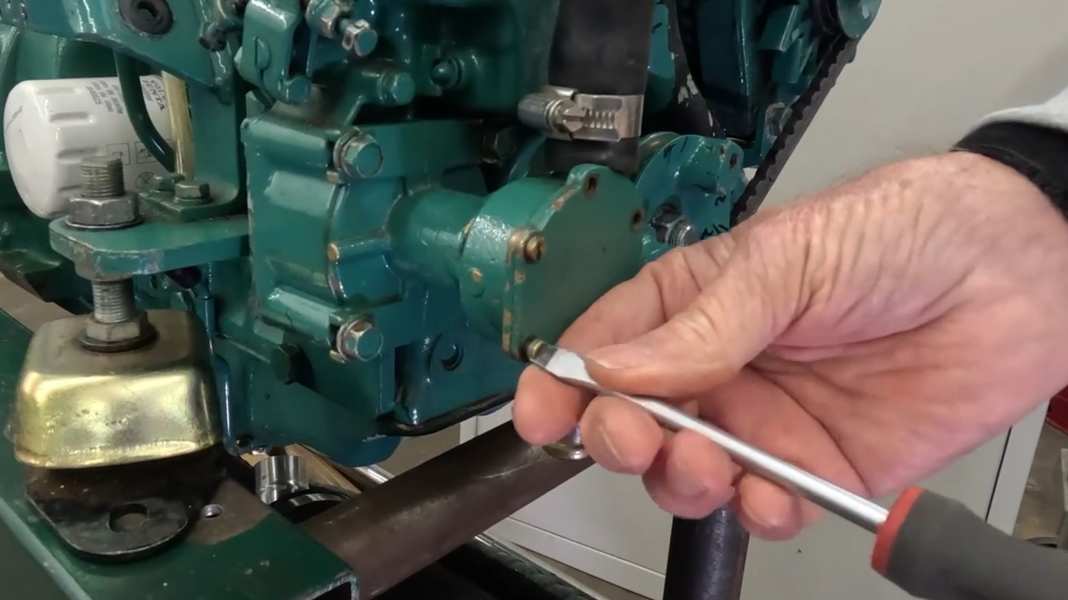Online course: Engine knowledge for maintenance, care and emergency repairs
Michael Rinck
· 04.02.2025

BoatHowTo is the name of the programme and is already established with an online course for boat electrics. The creators of the course, Dr Jan Athenstädt and Nigel Calder, have also recently started offering training material for boat diesel engines. The specialised knowledge is primarily conveyed via video, supplemented by graphics and texts. The course material comprises a total of eleven hours of video.
The individual videos are practically subdivided. There is an introduction with information on personal protective equipment, an introduction to basic diesel knowledge and then videos on specific steps for care and maintenance under headings such as fuel, lubrication, cooling and air. There are also several bonus chapters with in-depth expert knowledge and tips on how to detect and rectify faults.
Even though Dr Jan Athenstädt, a German, is behind the offer, the training material is written in English. Access costs a one-off fee of 299 dollars.
Dr Jan Athenstädt answered a few questions about BoatHowTo Diesel Engine:
Can the course replace a specialised company?
Yes! In the courses we cover all the necessary steps to maintain a boat diesel engine. Any boat owner who has ever held a spanner in their hand should be able to keep their engine running reliably for several thousand operating hours after our course. And if problems do occur, the course contains a huge amount of bonus material for troubleshooting.
Why is the offer in English?
Nigel Calder, one of the two partners in the project, is American. As Nigel is very well known in English-speaking countries for his specialist books, it made sense to initially produce the courses in English. However, after receiving extremely positive feedback on the English version, we are currently considering developing a German version.
What about different engine manufacturers and models? Do the instructions fit all of them?
In the course, we start with the basic maintenance steps, which are very similar for most models. We then go into more detail and demonstrate the work on 6 different engines in the workshop of the boatbuilding school in Travemünde. This covers a wide range of engines, from older Volvo Penta models with mechanical injection to a modern, powerful Yanmar diesel with common rail technology. In combination with the engine manual, our course should therefore explain the necessary work steps for pretty much any boat diesel.
Is the course more for maintenance and care or can I also find something if I need to solve an acute problem quickly?
There is a very comprehensive "Troubleshooting" module in the bonus area, where we look at possible problems and offer help with solutions.
If you get stuck despite the instructions, do you call the specialised company or is there also a BoatHowTo hotline?
Although there is no hotline, there is a comments section under each lesson where students can ask questions and there is a lively exchange of information. And yes, there are also topics where we do not recommend that boat owners do it themselves. These include sensitive elements such as injection pumps and turbochargers. A specialised company is definitely required here. However, these parts rarely break down, and when they do, it is usually due to a lack of maintenance. And that's exactly why we developed this course: It's better to invest a few hours in preventive maintenance than to have to wait for expensive mechanics on holiday afterwards.
How has the diesel boat course been received so far?
The course has been very well received internationally. Two months after the start of the course, over 600 boat owners from 29 countries have already registered. Together with over 2,000 participants in the BoatHowTo electrics courses, a real small community has now developed.
And we are particularly proud that two renowned boatbuilding schools in the USA now use our courses as official teaching material in their boating technology courses.

Michael Rinck
Redakteur Test & Technik

